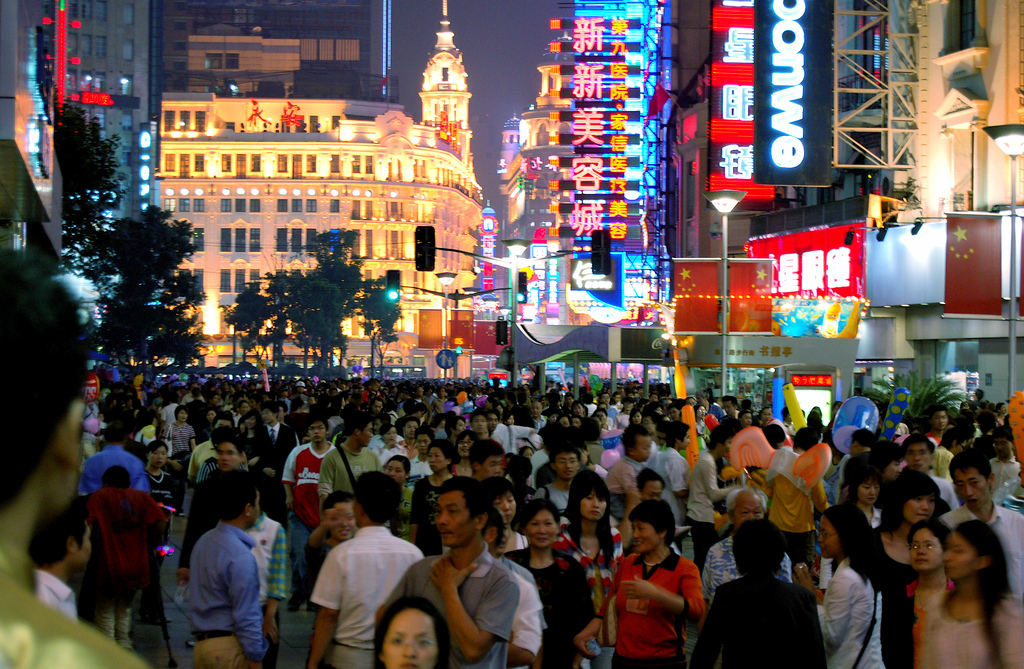Since the economic reforms of 1978, China’s economy has undergone unprecedented growth. With GDP growing at an average of 10.2% a year (compared to an annual average rate of 3.27% from 1947 to 2014 for the US), China surpassed Japan as Asia’s largest economy in 2010 and is expected to surpass the United States as the world’s largest economy by 2020. However, as past experience suggests, China’s era of high growth is beginning to end as the Chinese economy becomes more developed. Reports suggest that China’s growth rate may fall to 3.9% as early as 2020, which will result in global spillover effects by reducing global oil prices. One of the main sources of slowing growth in China has been its lower domestic demand which has affected China’s investment-driven economy. Fortunately, China’s decades of high growth rates have allowed it to develop industries that may help it to combat falling growth.
China’s slowing growth rate comes as no surprise, as economists have predicted China’s growth rate to be unsustainable. The largest driver of China’s high growth rate has been investment. However, as domestic demand has been slowing in recent years, the Chinese government’s investment-focused policies have led to excess supply of infrastructure and real estate in the market. Building booms resulted in many new apartment complexes and commercial centers in China’s cities, their construction being completed so quickly that entire cities seemed to double in size over-night. Unfortunately, domestic demand did not keep up with the growth in investment and a clear result of China’s inefficient investment policy and mis-forecasting are its ghost cities, uninhabited urban spaces made up entirely of empty neighbourhoods and shopping malls. However, despite falling consumer demand, there is still growth to be found in China’s growing technology sector.
Fortunately for the Chinese economy, years of high growth have allowed China technology companies to grow and prosper. These companies have become trendsetters in industries such as telecommunications and online services, allowing them to compete with global companies. Companies such as Huawei Technologies Co. (now the world’s second-largest telecommunications-equipment supplier by revenue) and Alibaba Group Holding Ltd. (which had the world’s largest IPO in 2014) have become world leaders in research and development (R&D) expenditures. It is these large levels of R&D that increase the productivity of the Chinese economy and thereby, the GDP growth rate.
China’s decreasing demand has also had implications for the global economy. As the world’s largest net-importer of oil, China’s demand for oil has a big impact on how the global price of oil is determined. In fact, many believe that China’s membership in the World Trade Organization starting in 2001 was the reason why the price of oil increased from $20 per barrel to $100 per barrel. Much of the blame for the recent sharp decline in the price of oil has been put on OPEC’s refusal to cut production which has led to excess supply of oil. However, given China’s magnitude, falling demand for oil from China is a large contributor to the price decrease, with West Texas Intermediate crude falling below $50 per barrel. On top of decreasing consumer demand for oil, the Chinese government has introduced higher oil consumption taxes. Despite the higher taxes, reports have suggested that the Chinese economy is still benefitting from lower oil prices.
After decades of high growth, falling domestic demand suggests that China may be approaching a more sustainable rate of growth. However, China may still have hope for high growth as it becomes a more and more innovative country whose companies have become worldwide competitors. Falling oil demand in China has contributed to the recent decrease in the price of oil which shows how slowing growth in China will have wide-ranging effects not only domestically but globally as well. It is also worth noting that some politicians are proposing that slower growth may be healthy for the Chinese economy in order to decrease inequality and prevent overheating of the Chinese economy that may result in unwanted inflation. The People’s Bank of China (PBOC), China’s central bank, has already taken action in preventing any inflation or excessive credit growth that would result from overheating. In January 2010, the PBOC increased bank’s reserve requirements by 0.5% in order to decrease the amounts of loans that banks were giving out. The PBOC also sold $200 billion yuan (approximately $30 billion USD) in 28-day bills in an attempt to increase interest rates and to tighten liquidity. Although GDP growth has slowed in recent years, the Chinese government and central bank still have the task of monitoring the economy that may still be at risk of overheating.




